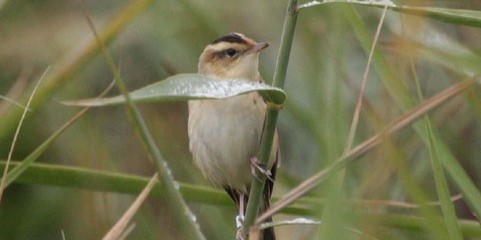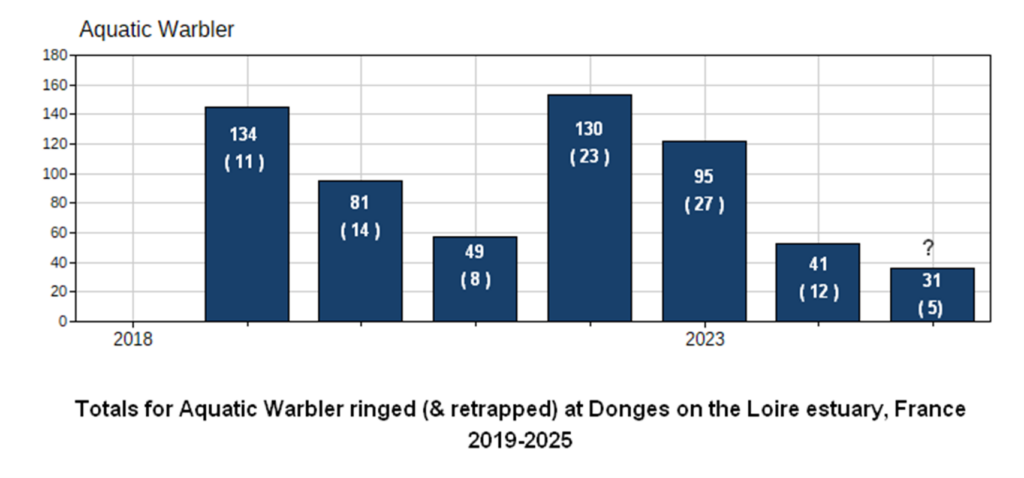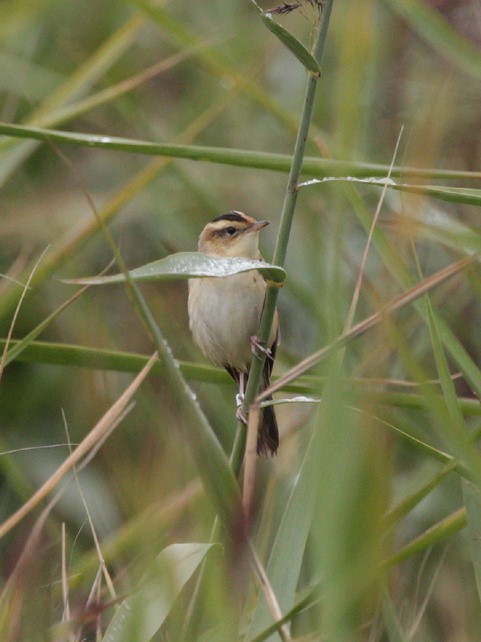
Ringing season in Donges, France: an alarming situation for Aquatic Warblers
-
AWOM
-
Biodiversity - Flyways
As of the 16th September 2025, our French LIFE AWOM partner ACROLA ringed a very impressive 15,958 individual birds with an additional 2,877 retraps bringing the total so far this year to 18,835 birds. The ringing activities are taking place in the Donges ringing station, in the West of France, which is part of the staging sites included in the LIFE AWOM project. When it comes to the Aquatic Warbler, the ringing team reported a very alarming situation.
No Aquatic Warbler were ringed in July and the first individual was recorded on 3rd August while throughout the month only one or two of these birds were trapped on most days with the exceptions being 5 birds on 14th and 4 on 18th. This is well below the average since 2010 when a systematic Aquatic Warbler protocol was initiated and as highlighted in the following infographic:

The lowest number of Aquatic Warblers in 15 years
While the habitat was in reasonably good condition again this year, the very warm conditions which had persisted since early summer meant that insect prey appeared to be in short supply. Good news for the ringing team who were not overly bothered by mosquitoes but bad news for the birds which depended on them and their larvae for food !
To put this year’s figures into context, the team in Donges ringed 41 new birds in 2024, their lowest number ever at the station, and this year they’ve only ringed 31 new individuals with just three weeks to go before the end of the season. While the team might expect a few more in the coming weeks if the weather is favourable the sad reality is that we’re looking at the worst ever year for this species in Donges, and the same situation seems to be the case for most of the other ringing stations in France, Belgium and the Netherlands.
Was is a disastrous breeding season? Did the team just fail to catch the Aquatic Warblers this year? Is climate change dealing a fatal blow to the survival of the species or has it somehow adapted and changed its migration strategy? An alarming situation indeed.


